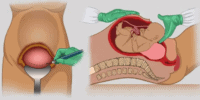Why Does Menopause Bring Hot Flashes, and How to Manage Them

While menopause is a natural stage in a woman’s life, it often comes with uncomfortable symptoms, such as hot flashes. These sudden waves of heat can be disruptive and impact daily activities.
However, there are effective ways to manage hot flashes and regain control over one’s well-being. In this article, we will explore various strategies, from identifying triggers and making lifestyle changes to considering natural remedies and seeking professional help.
By understanding and addressing hot flashes, women can navigate this stage with grace and ease.
Key Takeaways
- Hot flashes are a common symptom of menopause.
- Triggers for hot flashes can include stressful situations and certain foods and drinks.
- Lifestyle changes such as regular exercise and stress reduction techniques can help alleviate hot flashes.
- Hormone replacement therapy can effectively alleviate menopausal symptoms, but risks should be weighed against benefits and alternative treatments explored.
Understanding Menopause and Hot Flashes
In the realm of women’s health, understanding menopause and the intricacies surrounding hot flashes is crucial for healthcare professionals. Menopause is a natural biological process that marks the end of a woman’s reproductive years.
Hot flashes, one of the most common symptoms of menopause, can be disruptive and distressing for women. Healthcare professionals play a vital role in helping women manage these symptoms and develop effective coping strategies.
Managing symptoms may involve lifestyle modifications such as wearing lightweight clothing, avoiding triggers like spicy foods and caffeine, and maintaining a cool environment. Coping strategies may include deep breathing exercises, mindfulness techniques, and relaxation therapies.
It is important for healthcare professionals to provide education, support, and guidance to women experiencing menopause to improve their overall well-being and quality of life.
Identifying Triggers and Lifestyle Changes
Healthcare professionals must assist women in identifying triggers and implementing lifestyle changes to effectively manage hot flashes during menopause. Identifying stressors that can worsen hot flashes is essential. Stressful situations can lead to increased body temperature and trigger hot flashes. Therefore, it is important for women to identify and manage their stress levels through relaxation techniques, such as deep breathing exercises or meditation.
Additionally, diet modifications can play a significant role in managing hot flashes. Certain foods and drinks, such as spicy foods, caffeine, and alcohol, can trigger hot flashes. Healthcare professionals can help women identify these triggers and make necessary dietary adjustments.
Exploring Natural Remedies and Supplements
As women navigate the challenges of menopause, it is crucial to explore natural remedies and supplements to effectively manage hot flashes and improve overall well-being.
Natural alternatives, such as herbal supplements like black cohosh and red clover, have been shown to reduce the frequency and intensity of hot flashes.
Lifestyle modifications, including regular exercise, stress reduction techniques, and maintaining a healthy weight, can also help alleviate symptoms.
It is important to note that what works for one woman may not work for another, so it is essential to consult with a healthcare professional before starting any new treatment.
By considering natural alternatives and making lifestyle modifications, women can find relief from hot flashes and improve their quality of life during menopause.
However, for some women, hormone replacement therapy may be a viable option to further manage symptoms.
Considering Hormone Replacement Therapy
Hormone replacement therapy offers women an alternative approach to managing menopausal symptoms by supplementing declining hormone levels. While it can effectively alleviate symptoms such as hot flashes, night sweats, and vaginal dryness, it is important to consider the potential risks associated with this therapy.
Some studies have suggested an increased risk of breast cancer, heart disease, stroke, and blood clots in women using hormone replacement therapy. Therefore, it is crucial to weigh the benefits against the risks and make an informed decision with the help of a healthcare professional.
Additionally, it is worth exploring alternative treatments that can help manage menopausal symptoms, such as lifestyle modifications, herbal remedies, and non-hormonal medications. Seeking professional help and support can provide women with the necessary guidance and information to make the best choice for their individual needs.
Seeking Professional Help and Support
How can individuals ensure they receive the necessary guidance and support when seeking professional help for managing menopausal symptoms?
It is important for individuals going through menopause to seek professional counseling and support to effectively manage their symptoms. Professional counseling can provide individuals with the necessary guidance and advice on coping strategies, lifestyle changes, and treatment options.
By working with trained professionals, individuals can receive personalized care and support tailored to their specific needs.
Additionally, support groups can offer a sense of community and understanding as individuals navigate the challenges of menopause together. These groups provide a safe space for individuals to share their experiences, learn from others, and receive emotional support.
Overall, combining professional counseling and support groups can ensure that individuals receive comprehensive guidance and support for managing their menopausal symptoms.
Frequently Asked Questions
Are Hot Flashes Only Experienced by Women Going Through Menopause?
Hot flashes can be experienced by men, although they are more common in women going through menopause. Pregnancy can also cause hot flashes. Managing hot flashes may involve lifestyle changes, hormone therapy, and other treatments.
Can Hot Flashes Be a Sign of a More Serious Medical Condition?
Hot flashes can sometimes indicate a more serious medical condition, such as thyroid problems or certain types of cancer. It is important to consult with a healthcare professional for a proper diagnosis. Proper management techniques can help alleviate hot flashes.
How Long Do Hot Flashes Typically Last?
Hot flashes typically last for a few minutes to an hour and can occur multiple times a day or sporadically throughout the week. The duration and frequency of hot flashes may vary among individuals experiencing menopause.
Can Certain Foods or Drinks Trigger Hot Flashes?
Certain foods and drinks can trigger hot flashes in menopausal women. Spicy foods, caffeine, alcohol, and hot beverages are common culprits. However, there are also natural remedies such as herbal supplements and lifestyle changes that can help manage hot flashes.
Are There Any Alternative Treatments for Hot Flashes Besides Hormone Replacement Therapy?
Alternative treatments for hot flashes, aside from hormone replacement therapy, include natural remedies such as herbal supplements, acupuncture, mindfulness-based stress reduction, and lifestyle changes. These options aim to alleviate symptoms and improve quality of life during menopause.








